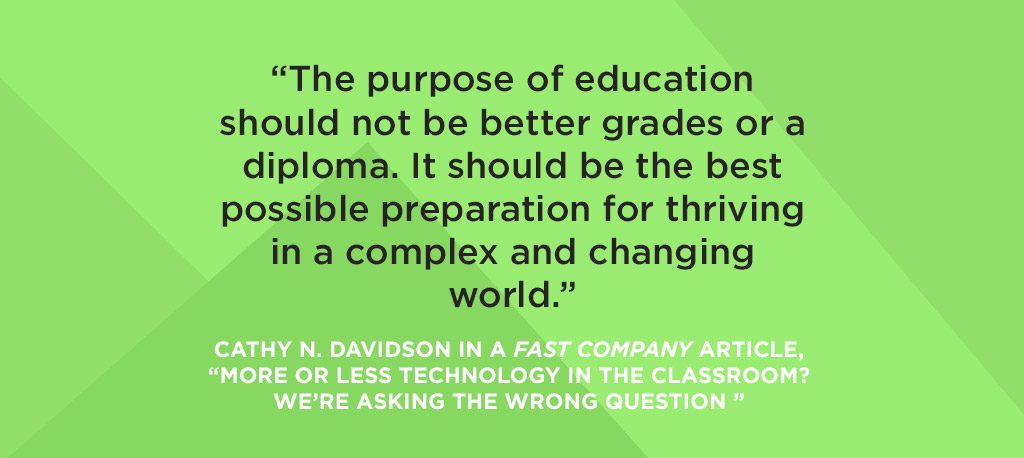This post originally appeared on Sept. 20, 2017.
Complaints about the use of various technological tools in classrooms are similar to objections to the use of certain books. FEAR—fear that the tool or book will taint the student, prevent them from learning as the complainers imagine they should learn, teach them something real-world that they don’t want them to learn, cause them to think beyond the lesson into reality.
“Seymour Papert, a pioneer in the field of artificial intelligence and cofounder of the MIT Media Lab, was an influential theorist and passionate advocate of student-centered learning. . . . He championed the idea that the best way to learn in the post-internet world of interactive communication is literally by constructing something: making, doing, exploring, experimenting, failing, analyzing the failures, and trying again.”
In English language arts classes, we use texts to give students a playing field where they can start with what they know from experience, and while looking in on the experiences of characters in a text, begin to construct and understand another’s world through the very same methods that Papert and many others championed.
That’s reason one of why banning doesn’t work. Students deprived of texts that will enable them to construct their learning rather than have it forced down their throats to be memorized, don’t learn and, worse, don’t learn how to learn.
Reason two is that we humans are curious folks and every time a book has been removed from the classroom with the students’ knowledge, that book has become the most popular book in town—students want to read it to see why it was banned.
Reason three is that students are usually way more resilient and knowledgeable than their parents know—they can handle, they often need, the texts some parents want to tear out of their hands.
Reason four is that our democracy was designed for a knowledgeable electorate and having someone dictate what we can or cannot learn does not produce such an electorate.
Next week is Banned Books Week, a time during the year when we stop to honor books that should be read and disparage why someone might take them away. This year, in particular, we honor The Students’ Right to Read.

